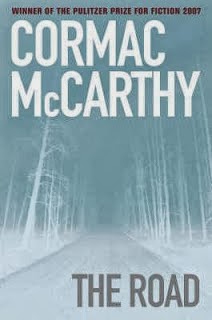1Q84: Book Three
2010 (Japan)/ 2011 (English)
Translated by Jay Rubin
Translated by Jay Rubin
Other Murakami Reviews- A Wild Sheep Chase - Dance Dance Dance - Underground - Sputnik Sweetheart - after the quake - After Dark - Blind Willow, Sleeping Woman - What I Talk About When I Talk About Running - 1Q84- Books I & II - Book III - Colorless Tsukuru Tazaki and His Years of Pilgrimage - Strange Library
'Loneliness becomes an acid that eats away at you.'
The third and final volume of Haruki Murakami's latest magnum opus picks up where the second left off, finding our two main characters Aomame and Tengo both in their own form of isolated limbo, trying to make sense of the bizarre events that have changed their lives forever in this apparent parallel world. After the surreal events surrounding her murder (or, more accurately, assisted suicide) of the supernatural leader of religious cult Sakigake, Aomame spends every day alone in her safe house. The one thing that keeps her going is the thought of once again seeing Tengo, our second lead character, who presently spends his days at his comatose father's bedside, hoping to catch a glimpse of the mysterious vision he witnessed at the end of the last book. I could try and summarize more of the plot than that, but it just wouldn't make any sense to someone who hasn't read it. Thankfully, Murakami has that covered...
Perhaps in an attempt to calm things down and take a more logical, step-by-step approach to explaining the crazy events that have occurred already, Murakami adds a third perspective to the proceedings in the form of Ushikawa, previously a supporting character who here exists in the role of a private investigator, hired by the religious cult to find Aomame, and who exists as a plot device to make more sense of the plot and also to advance it. Compared to some of Murakami's earlier epic and surreal novels (The Wind-Up Bird Chronicle springs to mind) the result is a more tempered, understandable approach that loses a little of the indefinable surrealism associated with Murakami's long form novels, instead taking certain aspects from his shorter work (such as Norwegian Wood) to focus on the relationship between the two main characters. Unlike Books One and Two, which can be vaguely categorized as a post-modern odyssey, Book Three is essentially a love story; Murakami's portrayal of two star-crossed lovers, escaping a universe created for them.
While 1Q84 as it was was an amazing novel, this third and final volume transforms it even further into a beautiful and magical tale with a clearer and more positive conclusion than the author normally offers. It may be a case of him acknowledging the fact that Murakami's is now undeniably an international superstar author, or the fact that these books combined tell the longest story he's told, but the conclusion is remarkably clear and contains aspects of the author at his best and most thematic, while standing out as unique and new. It's so rich and full of ideas and metaphor that I doubt that one reading is anywhere near enough to allow me to consider myself a student of it, but I took a lot from it, including masses of sheer enjoyment. At risk of hyperbole, surely the best piece of fiction of this millennium yet.



.jpg)

.JPG)



